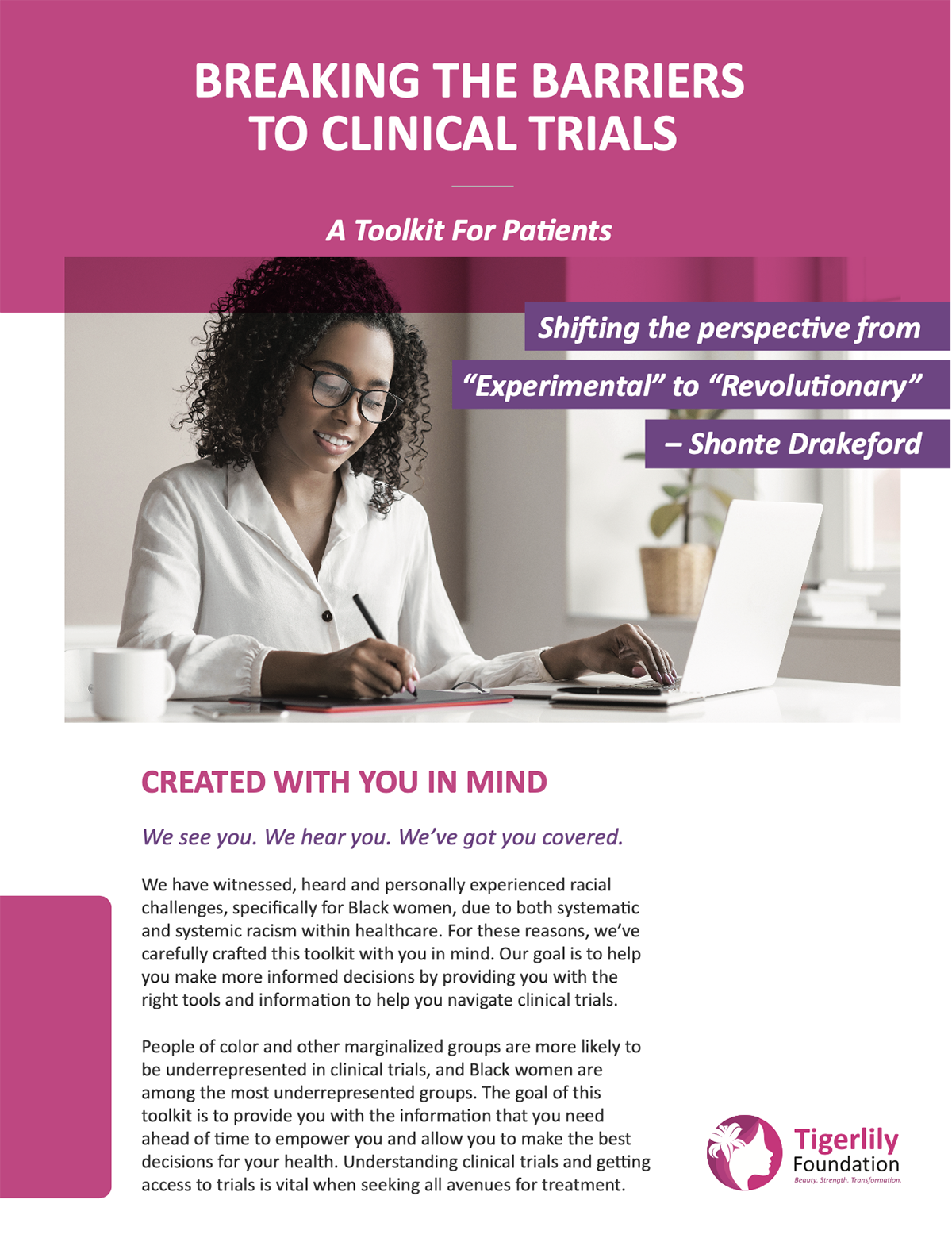BARRIER TOOLKITS
Literacy, financial barriers, access, social, systemic, and other issues should not be determinants of life and health equity. Particularly as patients are impacted by COVID and post COVID pandemic repercussions, the pandemic has had and will continue to impact health within the healthcare and cancer care ecosystem. To ensure patients have the right resources at their fingertips, we have created barrier toolkits. We listened to our patients and created these for and with patients and caregivers.
Fill out the form here, to download our Barrier Toolkits and learn more about breast health, lifestyle, wellness, prevention, and ways to lower your risk and experience #Nomorebarriers.

BREAKING THE BARRIERS TO CLINICAL TRIALS
This patient-centered toolkit gives a holistic breakdown of the clinical trial process including a list of questions to ask your healthcare team about clinical trials.
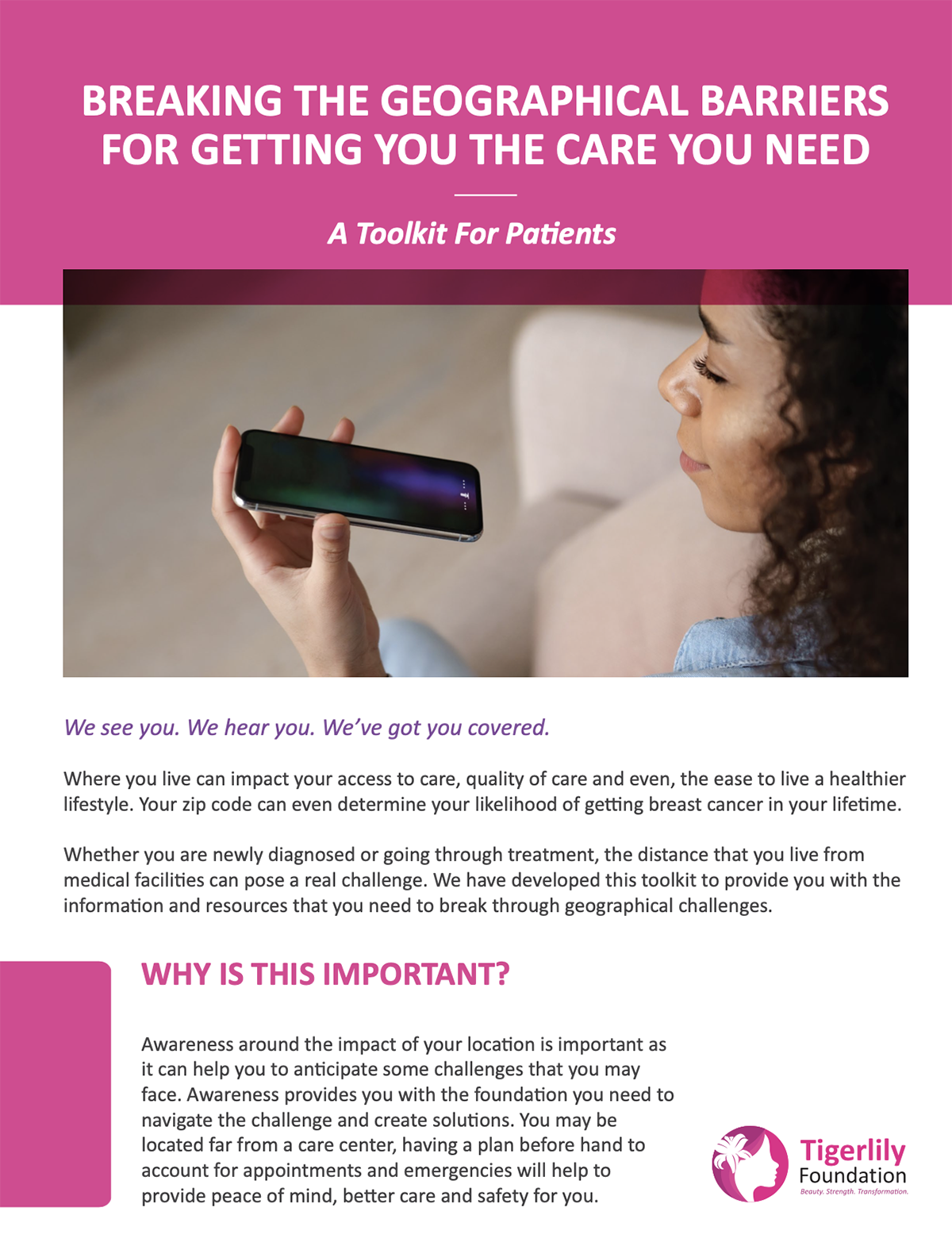
BREAKING THE GEOGRAPHICAL BARRIERS FOR GETTING YOU THE CARE YOU NEED
This patient-centered toolkit targets newly diagnosed or patients undergoing treatment impacted by the lack of resources due to their geographical location. Tips and resources are provided to address the effect of location on diet, travel and exercise.
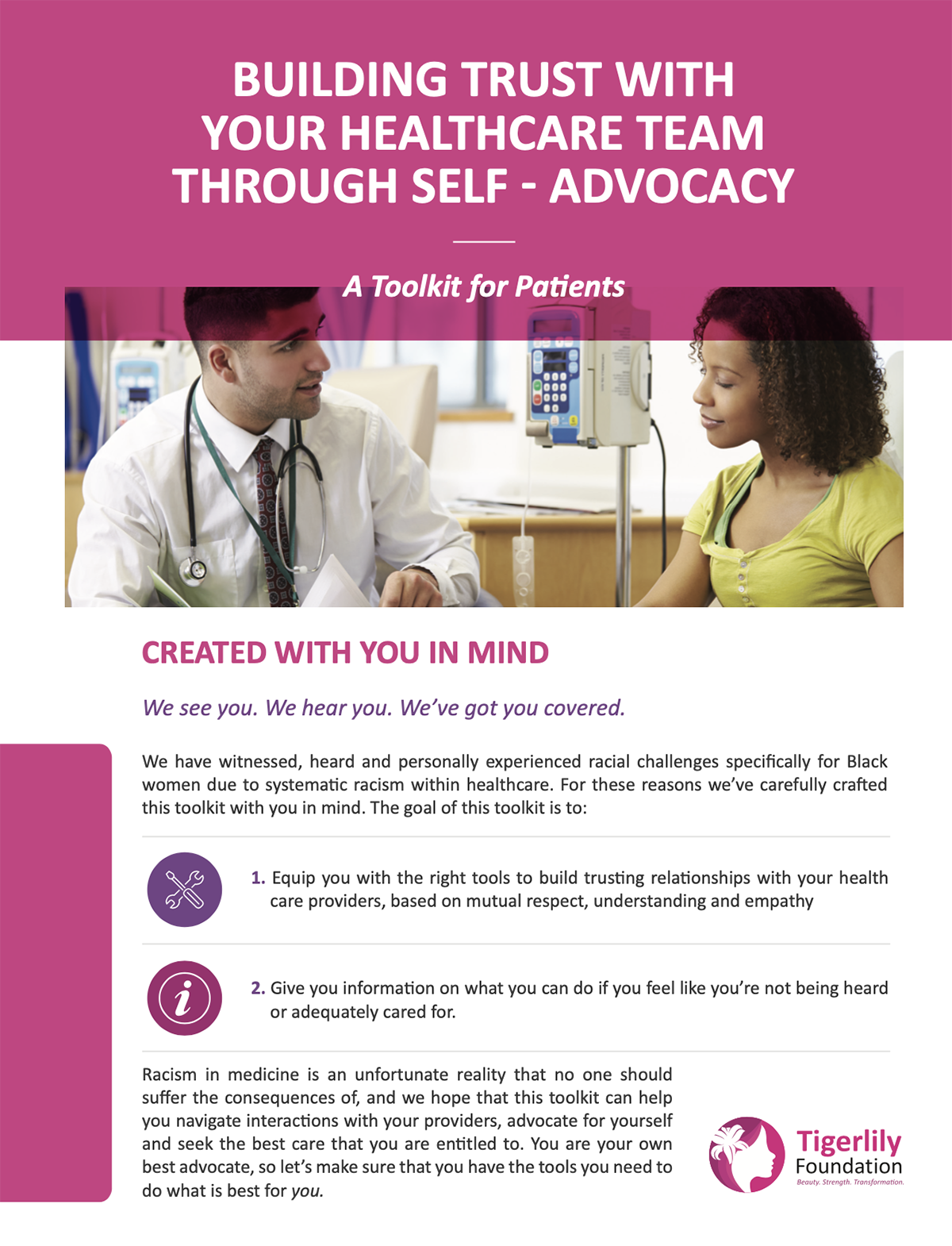
BUILDING TRUST WITH YOUR HEALTHCARE TEAM THROUGH SELF-ADVOCACY
This patient-centered toolkit seeks to build trust between patients and their healthcare team through self-advocacy. Our aim for this toolkit is to equip patients with the right tools to build trusting relationships with their healthcare providers and guidance on being heard.
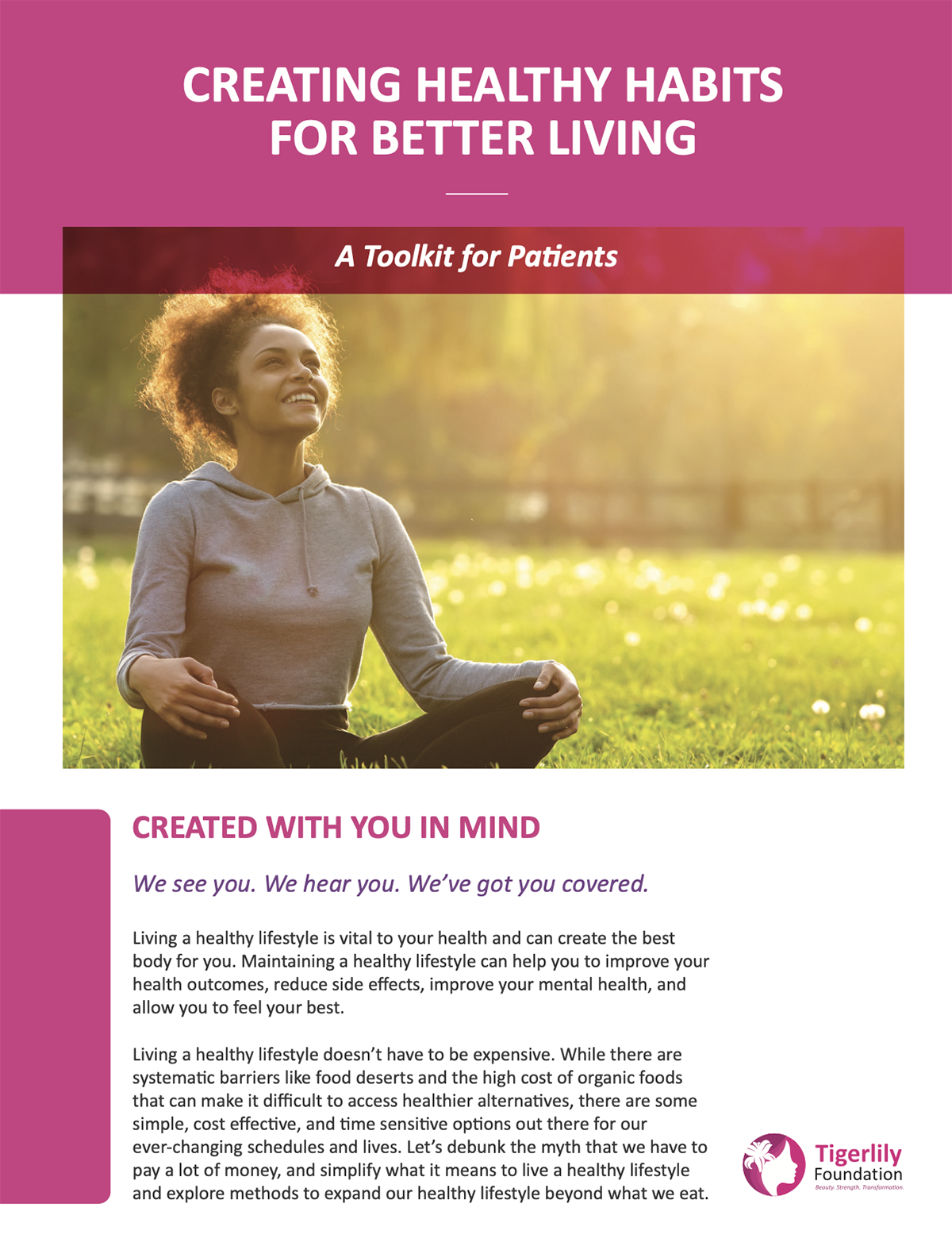
CREATING HEALTHY HABITS FOR BETTER LIVING
The lifestyle barrier toolkit provides advice on leading a healthier lifestyle, describing resources and questions to ask your doctor and healthcare team.
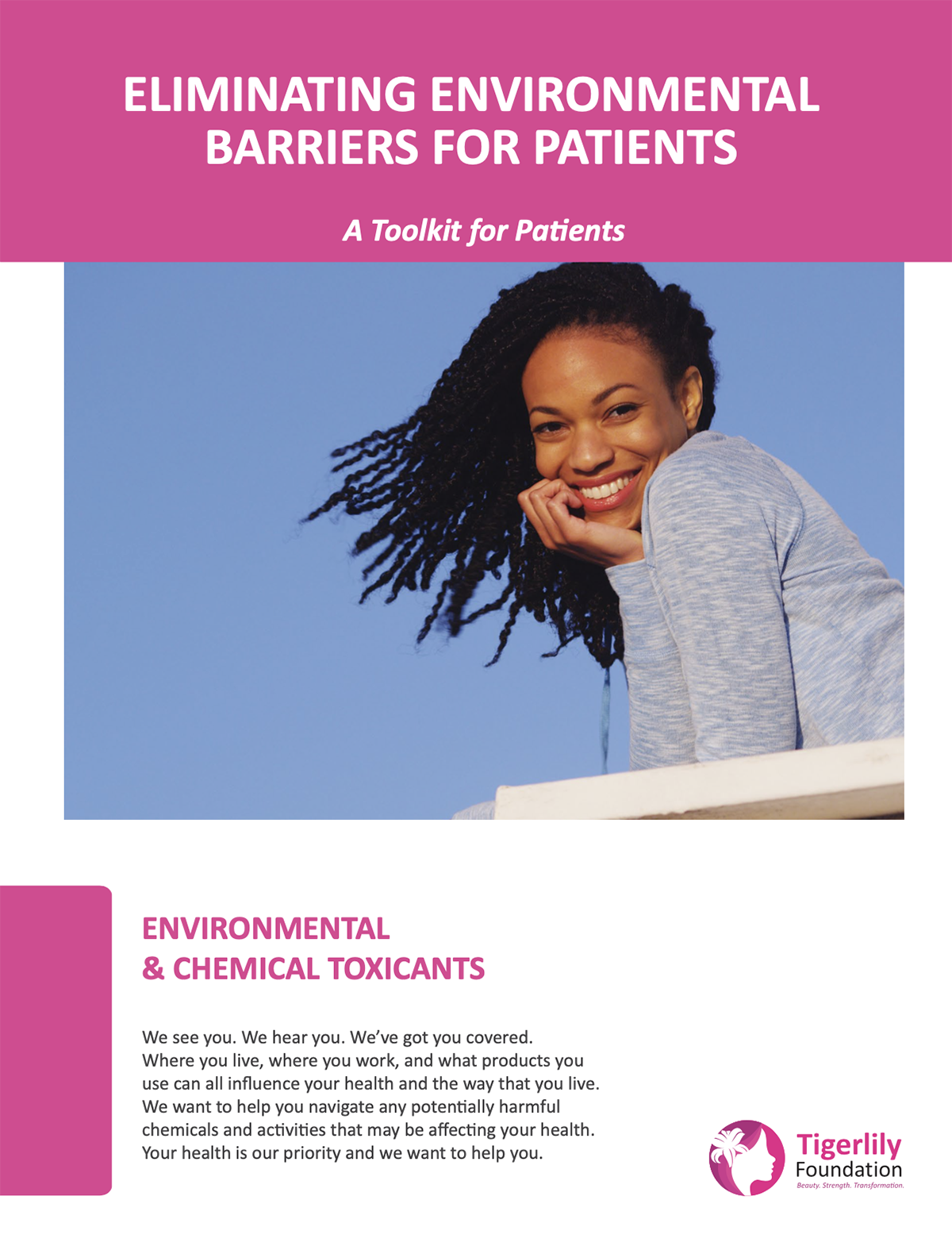
ELIMINATING ENVIRONMENTAL BARRIERS FOR PATIENTS
This patient-centered environmental toolkit provides insight into environmental and chemical toxins. This toolkit aims to help patients navigate any potentially harmful chemicals and activities that may be negatively affecting their health, as well as, reassessing potentially harmful products used in their daily lives.
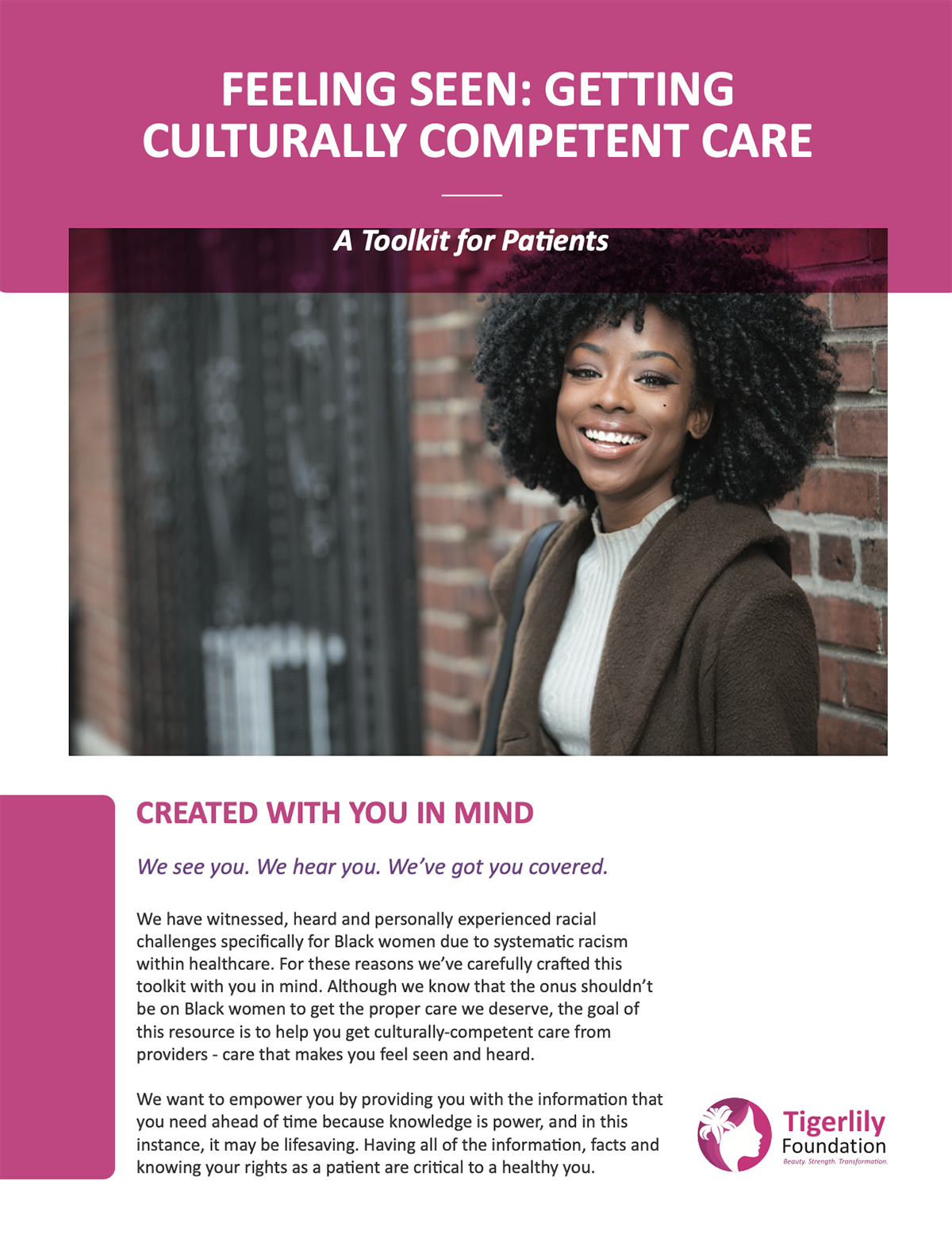
FEELING SEEN: BREAKING FINANCIAL & SOCIOECONOMIC BARRIERS TO CARE
This patient-focused toolkit discusses dismantling financial and socio-economic barriers to care by providing financial assistance and cost breakdowns of patient care.
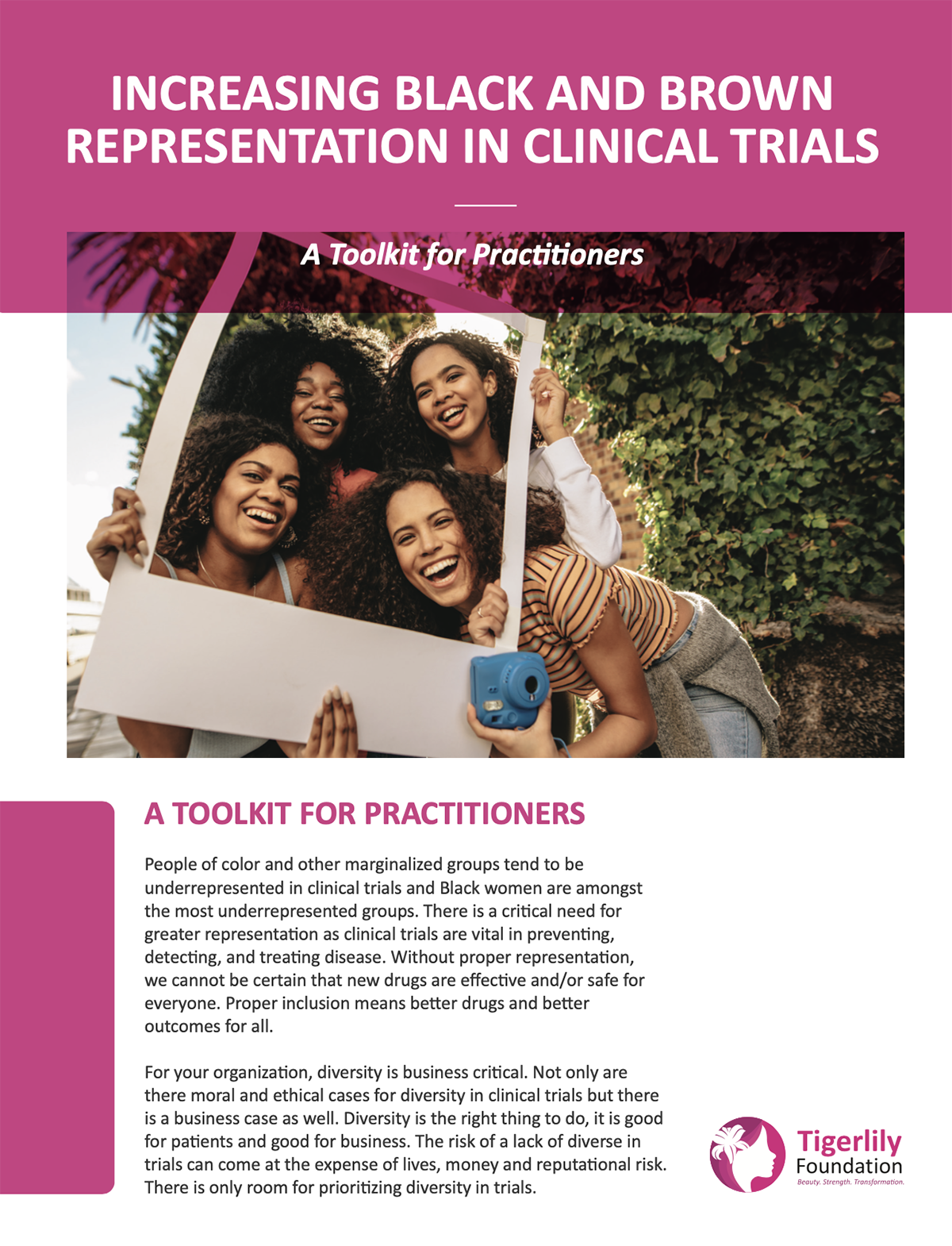
INCREASING BLACK AND BROWN REPRESENTATION IN CLINICAL TRIALS
This practitioner-facing toolkit seeks to facilitate transformational change in organizations through strategies that can help streamline messaging, tackle medical racism and unconscious bias in clinical trial development and implementation.
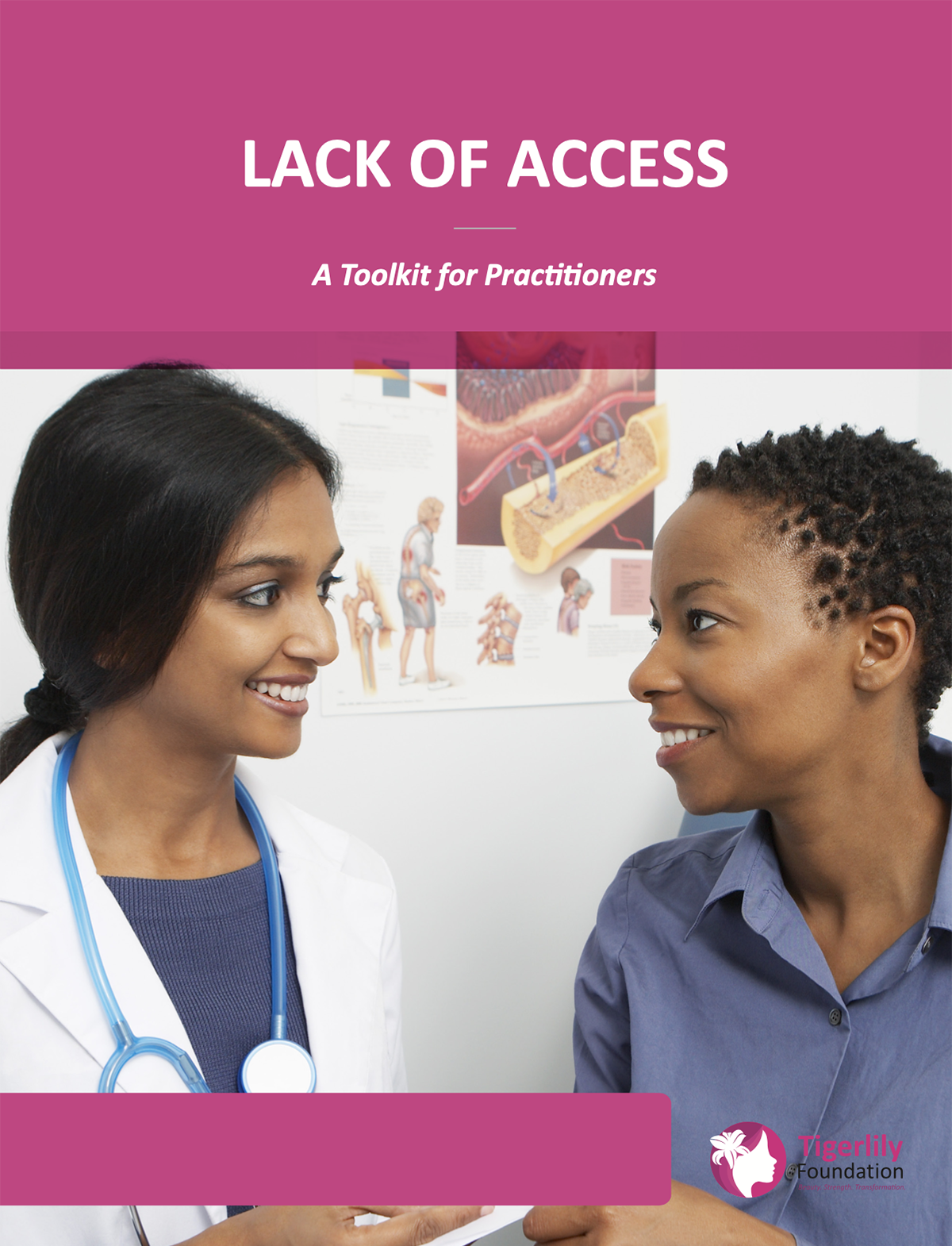
LACK OF ACCESS
This practitioner-focused toolkit gives insight to providers on the patient perspective and the ripple effect of limited access on patients. In this toolkit, Tigerlily Foundation discusses how Black women are affected by socio-economic, systemic challenges, and psycho-social trauma that limits access to medical care and support systems. We provide suggestions for organizations to implement and address these challenges.
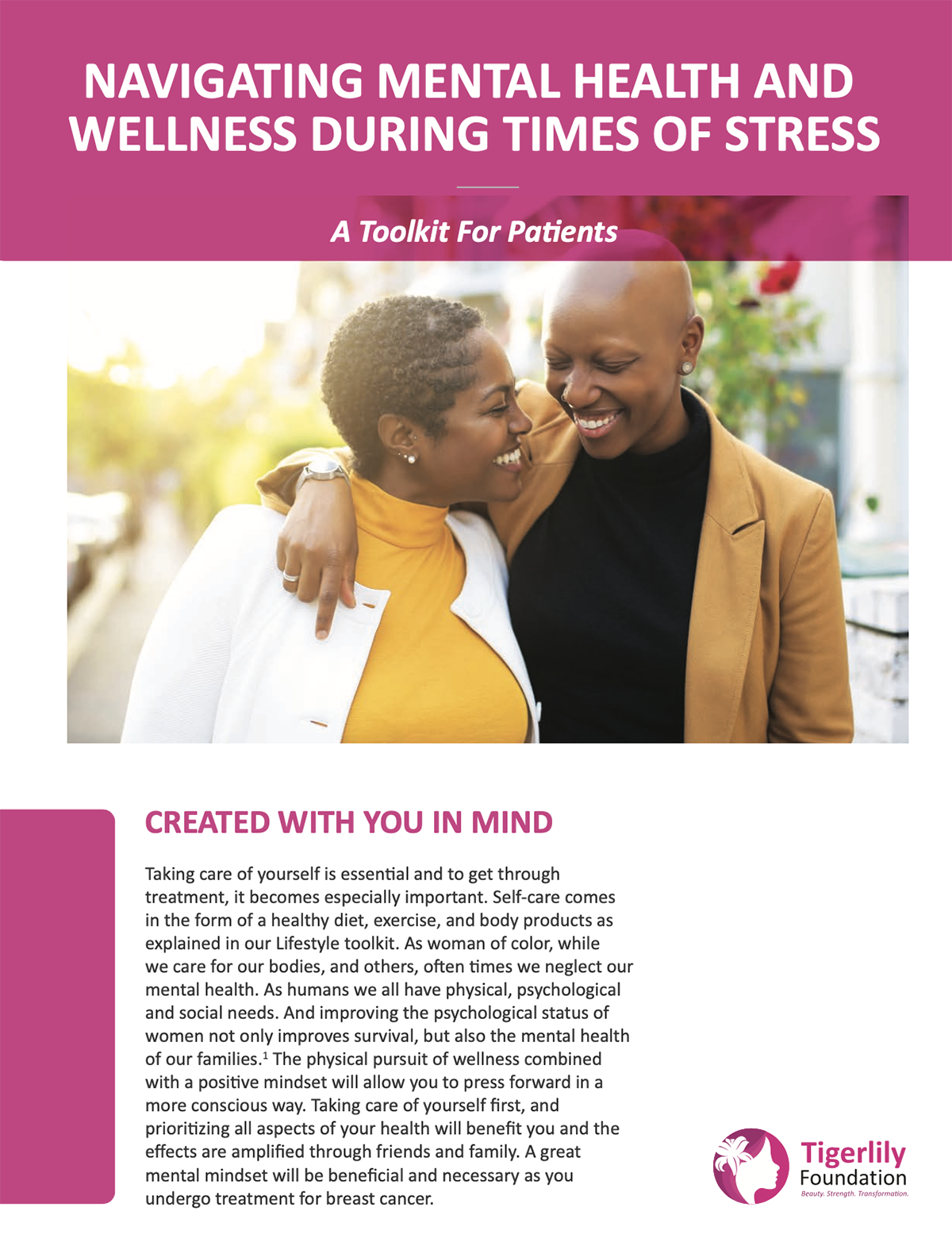
NAVIGATING MENTAL HEALTH AND WELLNESS DURING TIMES OF STRESS
This patient-centered toolkit focuses on navigating mental health and wellness during stressful times, particularly through one’s breast cancer journey. Tips and recommendations are shared with the patient.
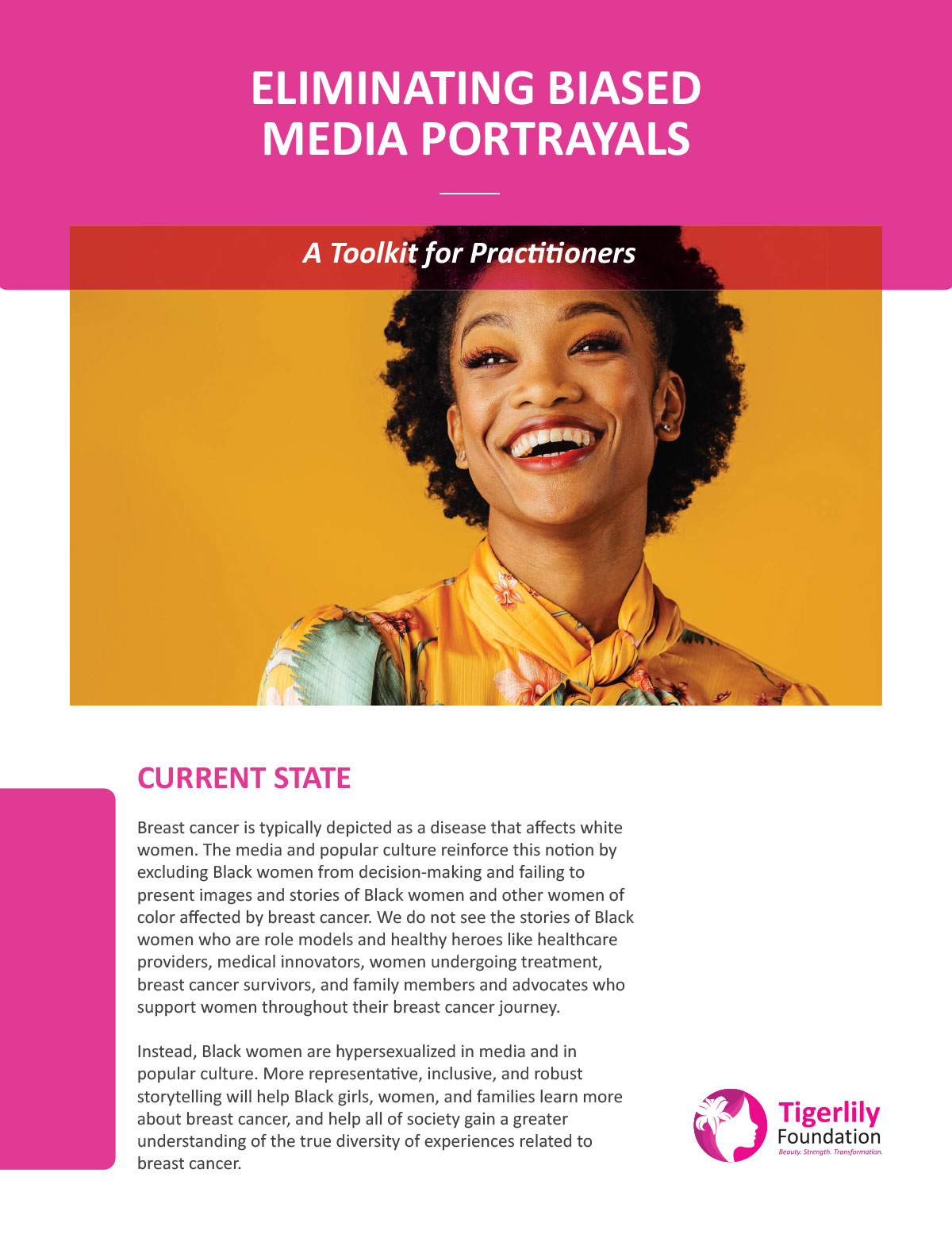
Eliminating Biased Media Portrayals
This barrier toolkit for practitioners shares key organizational questions to consider prior to externally sharing educational and marketing materials. The toolkit recommends inclusive strategies for information sharing and takeaway tips.
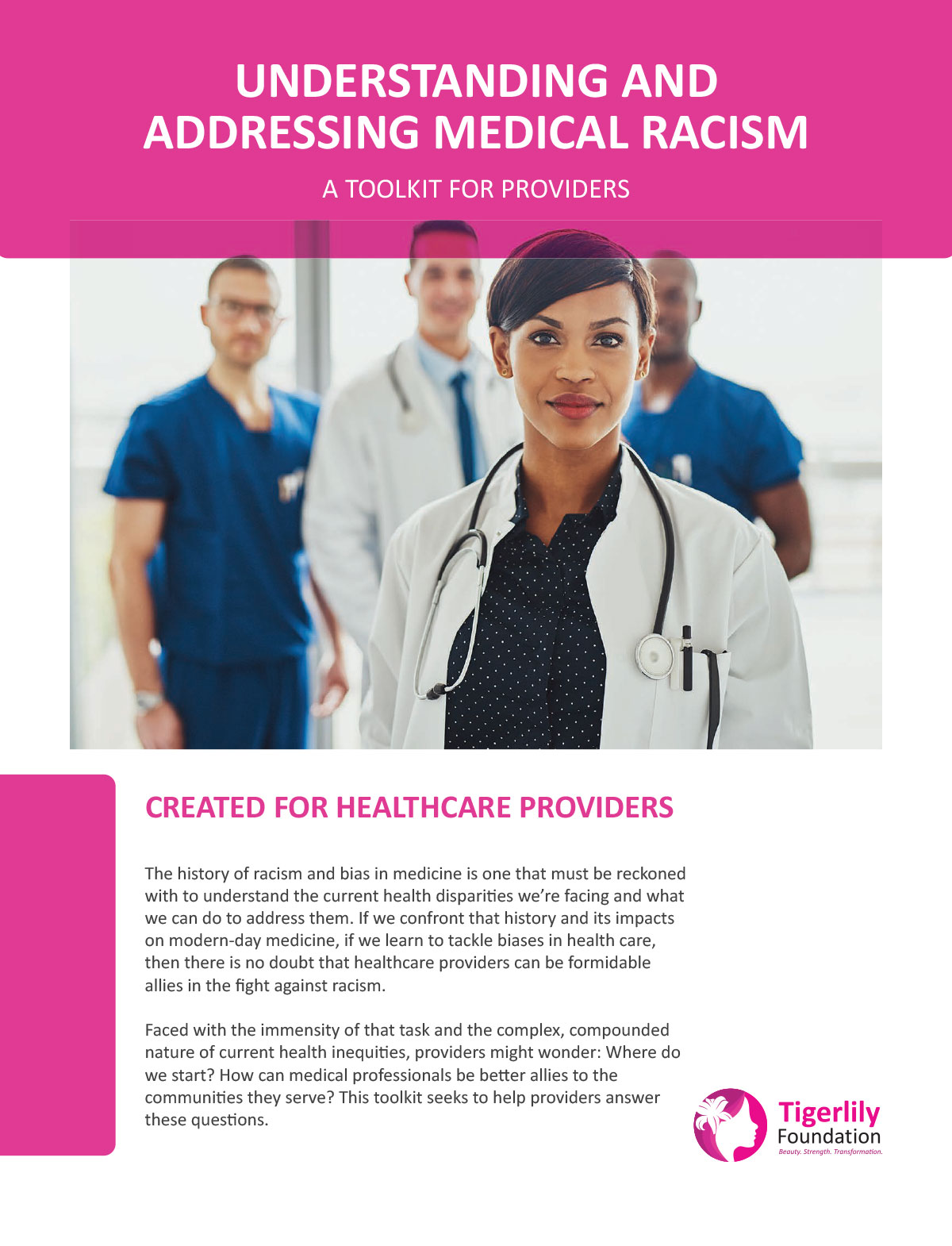
Understanding and Addressing Medical Racism
This barrier toolkit created for healthcare providers sheds light on the American Healthcare System. It provides steps your organization can implement to acknowledge history, reduce hidden biases, support patient-provider interactions, and build an inclusive healthcare facility.
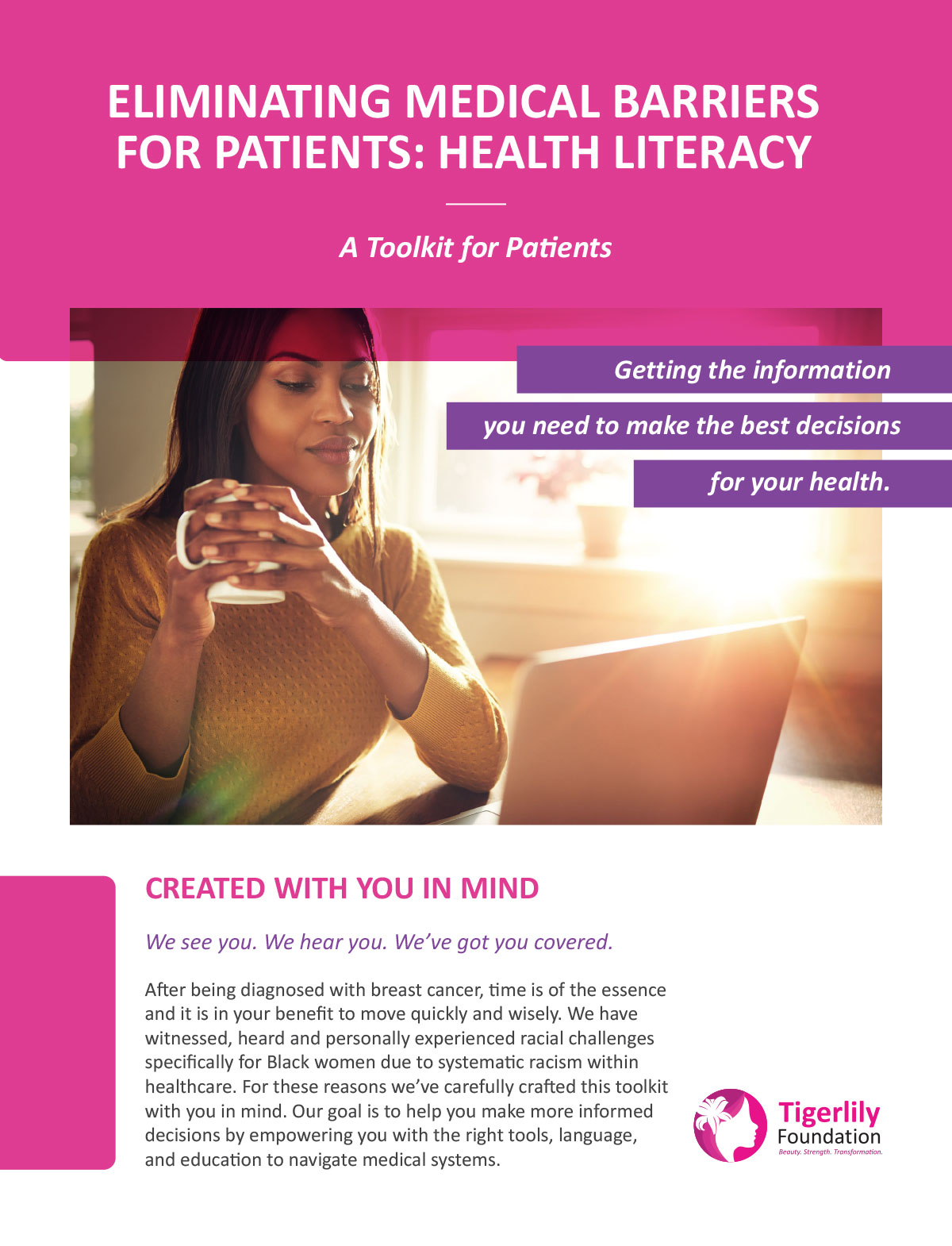
Eliminating Medical Barriers for Patients: Health Literacy
This patient-facing toolkit dives into health literacy especially challenges and points to consider when deciding treatment options, genetic testing, and more. It is our hope that patients will be empowered by the information on lifestyle, clinical trials, and questions to ask your health care team after reading this resource-packed guide.
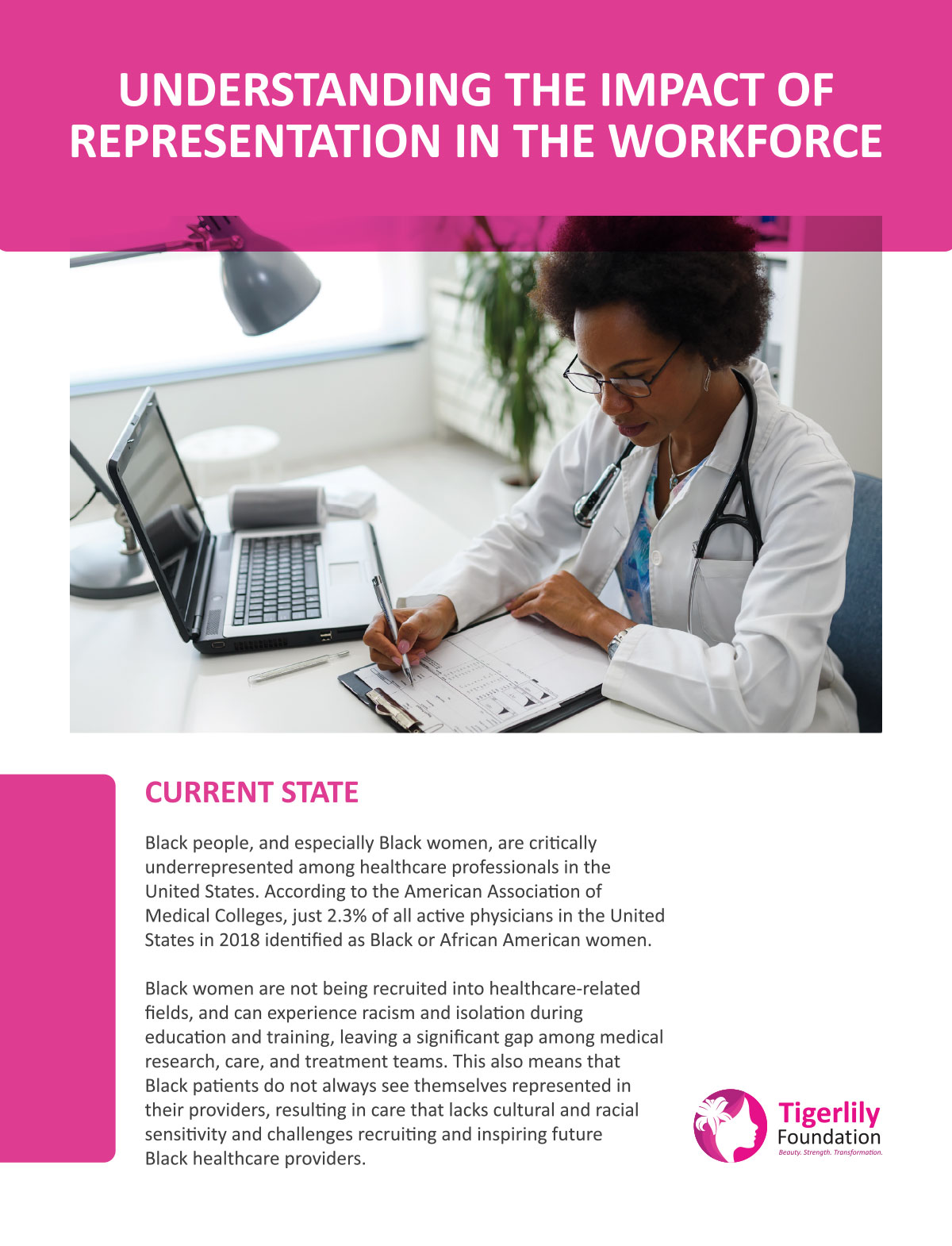
Understanding the Impact of Representation in the Workforce
This toolkit focuses on the critical need for increased representation within the healthcare workforce. By providing organizational recommendations on recruitment, hiring and focus groups, this toolkit covers developing culturally sensitive spaces, employee benefits and additional development programs.
Our Partners & Supporters








